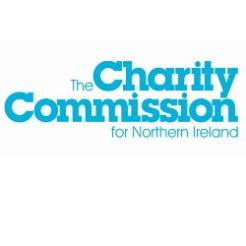A medical charity in Northern Ireland has closed after an investigation by the Charity Commission for Northern Ireland found that the charity was providing a private benefit.
The Commission opened an inquiry into Emergency Medical Services in February 2014 following the receipt of a concern that alleged that there “was no clear delineation between Emergency Medical Services and a business sharing the charity’s premises”.
Following the concern, the Commission found that there were serious governance failures and a “risk that the charity’s assets were being used to supplement and support the private business, which shared its address”. As a result it opened a statutory inquiry into the charity.
The charity, which was principally funded through street collections and other fundraising activities, was involved in the provision of first aid training to volunteers who provided cover at public events including parades and festivals in the Magherafelt and Cookstown areas.
The concerned party alleged in May 2013 that the “principal cause of the confusion over the remit of the charity were the actions of Mr Tom Gourley”, the officer in charge of the charity, the sole trader running the private company Emergency Medical Supplies and managing director of the EMS Group.
The individual suggested that Gourley treated the charity as being “as much under his control and direction as his own business and that, as a result, he was accruing an inappropriate private benefit”.
The charity denied any conflict of interest following questioning by the Commission, however the Commission “considered that significant risk existed in terms of volunteers and donors to the charity being misled, and charity resources being used for private benefit,” and opened a statutory inquiry in February.
The Commission said that Gourley “also frustrated the attempts of a number of trustees to bring the charity into good governance, through his dominance”.
Gourley went on to resign from his position as officer in charge of the charity Emergency Medical Services in April 2014, before resigning from the charity committee in June. The following month the members of the charity took the decision to close the charity.
The Commission concluded that despite the charity affording the opportunity for individuals to explore volunteering, the charitable outcomes were “incidental to the significant private benefit that the charity’s operations provided to Gourley”.
The Commission said that Gourley received business relief rates of £8,725 per annum, that his business received rent payments every four weeks from the charity, and that Gourley's business interests were furthered “through fostering the impression that the charity and his businesses were one and the same”.
The inquiry marked the first time that the Commission had used powers to order someone “not to part with charity property without the approval of the Commission” and “order to restrict the transactions which may be entered into, without the approval of the Commission”.
Myles McKeown, head of enquiries and compliance at the Charity Commission for Northern Ireland, said: “This inquiry is a reminder to all charity trustees of the responsible and trustworthy role they hold as leaders of their charity. People put a lot of faith and confidence into charities and it is imperative that trustees return that good faith by putting the interests of the charity before that that of their own or any other person or business interests.
“It is vital that charities have clear, written procedures in place to manage any potential conflicts of interest that may arise. It is the duty of all trustees, acting collectively, to ensure they have taken reasonable steps to manage conflicts and ensure any private benefits which occur are incidental only.”
The Commission has shared its findings with HMRC and Land and Property Services, to allow them to take any action they see fit in relation to the case.
Gourley did not respond to an invitation to comment.









